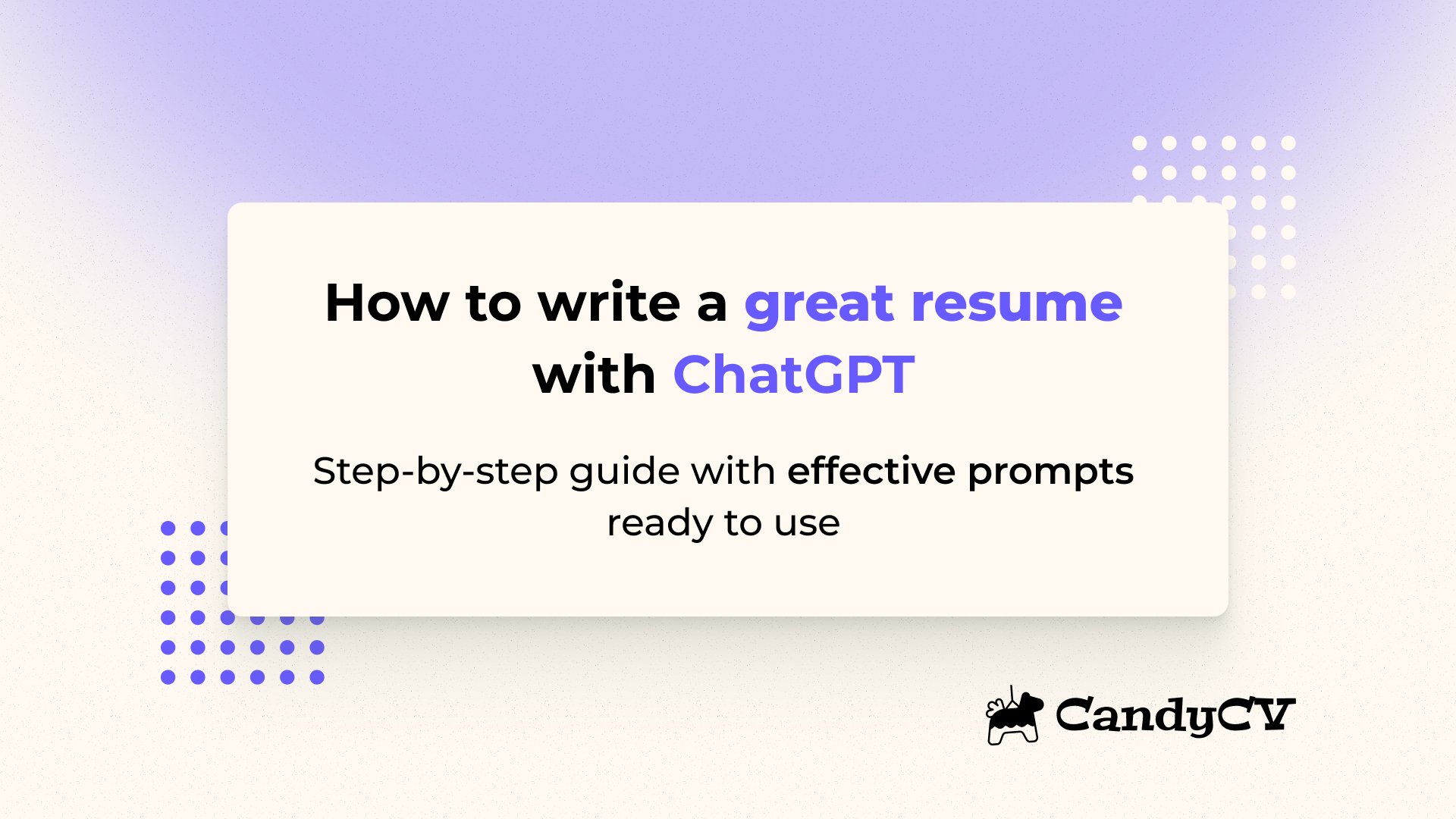
Best skills to put on a resume (with examples and how to develop them)
Every role is different and every company asks for slightly different things. But they’re all trying to reduce the same risks: the work doesn’t get done, communication breaks down, decisions go sideways under pressure, or you freeze when priorities change.
That’s why there’s a set of skills hiring teams look for across almost every hiring process and why you need them on your resume.
In this article (updated for 2026), you’ll get:
- The most in-demand resume skills that show up across roles in 2026.
- Why employers care about them (what risk they’re screening for).
- Plan to build the skills you’re missing.
Most in-demand resume skills (quick list)
This table is a snapshot. Later, I’ll break each one down: what it means today, why it matters, resume examples and how to build it.
| Type | Most in-demand resume skills |
|---|---|
| Soft skills | Clear communication, priorititization, problem solving, ownership, adaptability and learning agility. |
| Digital skills | AI applied to your role, basic data analysis, project and task management. |
You don’t need all of them, and you definitely shouldn’t list all of them. Pick the ones that are most relevant to your target role and the ones you can back up with real examples.
What “soft skills” and “digital skills” mean on a resume
- Soft skills: how you think, decide, collaborate, and communicate.
- Digital skills: your ability to work with tools, data, and digital workflows (increasingly non-negotiable).
Soft skills for your resume in 2026 (with examples and how to build them)
Clear communication (in-person and remote)
Why employers care right now
Work is more cross-functional and more asynchronous. Other people depend on your information to decide, execute, or unblock themselves. Strong communicators reduce misunderstandings, prevent rework, and speed up decisions.
Resume-ready examples of clear communication at work
Meeting deadlines even when multiple teams are involved, aligning stakeholders, communicating a difficult decision cleanly, writing clear instructions, pitching an idea to your manager and getting buy-in.
How to build clear communication
For this skill, you don’t need a course. You need structure and repetition.
- For every important message you want to send, use this structure: context → goal → status → proposal → next step.
- After every meeting (or any important conversation), send a short recap: decisions / owners / deadlines / blockers.
- For uncomfortable conversations (delay, conflict, “not a priority,” missing info), use: facts → impact → options → recommendation.
Prioritization
Why employers care right now
Modern work is noisy: more channels, more tasks, more interruptions. Prioritization isn’t “being organized.” It’s protecting what matters against the noise so your job doesn’t turn into constant reacting. Companies value it because people who prioritize well deliver results without burning the team out.
Resume-ready examples of great prioritization at work
Choosing what comes first and holding the line, renegotiating scope when something won’t fit, surfacing dependencies early, reprioritizing when context changes, saying no without creating chaos.
How to build prioritization
- Every Monday, pick three priorities max for the week.
- Every Friday, review what pulled you off-track and why.
- Identify your top 3 interruptions and try to automate them or build a system that protects your focus time.
Problem solving
Why employers care right now
Almost no job is just “doing tasks.” There’s friction, bugs, dependencies, ambiguity, and bad decisions. Problem solving matters because it prevents losses (time, money, reputation) and keeps the team moving even when the system is imperfect.
Resume-ready examples of problem solving at work
Finding why a process stalls and fixing the bottleneck, proposing an alternative when resources or information are missing, turning a complaint (“this doesn’t work”) into a plan (“here’s what we’ll try next”).
How to build problem solving
- Pick one problem and fix it (something small that still improves the system).
- Document what was happening, what you changed, what it prevents and how it solved the problem.
Ownership and autonomy
Why employers care right now
Autonomy is highly valued because it means you move without constant supervision and, more importantly, you close the loop. You don’t leave half-finished work or “ownerless” problems behind.
Resume-ready examples of ownership at work
Anticipating blockers, making decisions aligned with the business without needing permission for everything, proposing improvements proactively, hitting goals and closing important tasks.
How to build ownership and autonomy
- Align on your goals with your manager (or define them clearly if you don’t have one).
- Make a plan to hit those goals across time, scope, and effort (and own the follow-through).
- If the goal requires other people, treat coordination as part of the work (not an afterthought).
Adaptability and learning agility
Why employers care right now
Context changes fast: new tools, new processes, new priorities, new customers. Adaptability reduces the cost of change. People who learn quickly don’t slow the team down when something new appears.
Resume-ready examples of adaptability at work
Learning a new tool to solve a specific need, changing how you work because the team needs it, adjusting to a priority shift without stalling, onboarding into a new process quickly.
How to build adaptability and learning agility
- Pick one skill or tool you can use immediately in your work.
- Learn only what you need to execute a real use case (don’t get lost in theory).
- Repeat the same use case, improving it each time (faster, cleaner, fewer mistakes).
Digital skills for your resume in 2026 (with examples and a development plan)
AI applied to your role
Why employers care right now
AI is a productivity lever. All companies want it for three reasons:
- Saving time on repetitive tasks.
- Improving first drafts (writing, analysis, planning).
- Accelerating decision-making.
They’re looking for someone who knows when to use AI, how to ask for useful output, and how to review it so it doesn’t create mistakes.
Resume-ready examples of using AI well at work
- Turning meeting notes into a clean recap with decisions and next steps.
- Drafting a sensitive email (complaint, terms change, follow-up), then rewriting it for tone and context.
- Generating a first draft of a proposal or deck, then spending your time improving structure and arguments (instead of fighting the blank page).
- Comparing approaches (“three ways to solve X”) and selecting one with clear pros/cons.
- Converting a long document into an operational checklist for the team.
- Spotting inconsistencies in a text (missing data, contradictions, logic gaps) before sending it.
How to build AI applied to your role
- Pick one task you do at least twice a week and design a workflow: input (context + goal) → output (expected format) → review.
- Add constraints (“don’t invent data,” “if info is missing, ask questions”) and track two things: time saved and quality.
Data analysis
Why employers care right now
Even if you’re not in a data role, most jobs have metrics: revenue, cycle time, quality, satisfaction, efficiency. Companies value basic analysis because it means you can understand what’s happening and make informed decisions that increase the odds of success.
Resume-ready examples of data analysis at work
- Reviewing campaign results and deciding what to repeat, cut, or test next.
- Finding a bottleneck by measuring cycle time between steps and spotting trends.
- Identifying recurring errors and measuring whether a change reduces them.
How to build data analysis
- Track one metric weekly and call out a trend (4 check-ins).
- Compare two time periods and explain what changed (reasonable hypotheses + how you’d confirm).
- Write a short mini-report with 3 actionable takeaways.
Project and task management
Why employers care right now
Project management matters because it makes work visible, reduces blockers, and helps teams coordinate to deliver outcomes. It’s not about using Jira or Trello. It’s about planning, executing, and closing projects within time, scope, and cost.
Resume-ready examples of project management at work
- Turning an ambiguous request into clear tasks with an owner and deadline.
- Spotting dependencies and unblocking them early.
- Coordinating deliverables across teams and managing changes or delays.
- Keeping stakeholders up to date so progress is obvious.
How to build project and task management
- Create a simple board with three columns: to do / in progress / done. For each task, define the goal, due date, and what “done” means.
- Every Monday: plan what fits this week and mark dependencies (what you need and from whom).
- Every Friday: review what shipped, what got stuck, and what you learned. Adjust how you estimate and prioritize next week.
How to choose which skills to include (without stuffing your resume)
Use this filter before you add any skill:
- Does this skill show up in the role I’m targeting?
- Can I prove it with a recent example?
- Does it reduce a common risk (errors, delays, chaos, bad coordination)?
If you can’t answer “yes” to at least two, that skill probably doesn’t belong on your resume.
Conclusion
You get hired based on the skills employers believe you have, so choose them carefully and, more importantly, explain them well.
You now have a strong list of soft skills and digital skills that show up across hiring because they reduce real, common risks. Next step: put evidence on your resume for the ones you choose.
In CandyCV you can turn these skills into a resume that reads fast and adapts easily:
- Choose a clean, readable template (for recruiters and ATS).
- Structure your resume so your skills show up where they matter (not hidden).
- Keep a strong base version and tailor it in minutes for each job posting (without rewriting everything).
FAQ
What skills do employers look for on a resume?
Skills that signal you’ll get the work done: you can coordinate, make reasonable decisions, and execute to hit goals and deadlines. Hiring teams want to reduce risks like rework, chaos, delays, poor decisions, and communication breakdowns. Show evidence of clear communication, prioritization, problem solving, ownership, and digital fluency inside your work experience.
What are the best soft skills to put on a resume in 2026?
The ones that reduce friction and speed up delivery: clear communication, prioritization, problem solving, ownership/autonomy, and adaptability (learning agility).
What digital skills do employers want on a resume in 2026?
The ones that make you effective in modern workflows and help you make better decisions: AI applied to your role, basic data analysis, and project/task management.
What’s the difference between skills and competencies?
A skill is specific and observable (“data analysis,” “clear communication”). A competency usually bundles multiple skills applied in a context (for example, “project management” includes planning, communication, tracking, and tools). On resumes, people often use them interchangeably, and the section is usually labeled “Skills.”
What are the key skills for a resume?
The most “core” ones are the skills that consistently predict performance across roles: clear communication, prioritization, problem solving, ownership, adaptability, basic data analysis, and (increasingly) AI applied to the job. They matter because they directly impact productivity and coordination, which is what your resume needs to communicate quickly.
What skills can I put on my resume with no experience?
Use skills you built through projects, internships, volunteering, coursework, or unrelated jobs: communication (presentations, coordination), prioritization (deadlines), teamwork, tools you used, and structured documentation. The trick is translating real experiences into work-relevant skills with proof.
How many skills should I list on a resume?
In most cases, 8-12 is a solid range. Fewer if you’re early-career (around 6-10). More if your role is highly technical and you need tools/stack keywords (often 10-15). Prioritize the skills repeated in the job posting and the ones you can support with evidence.
We're two product builders who care about quality, taste and doing things right. We want you to get that job you want, plain and simple. That's why we are building CandyCV to help you create a great resume and land a job for free. If you give us a try (and feedback!), we'll be forever grateful 😊
Alba Hornero
Co-founder and Employability Expert
As CandyCV’s co-founder and a former product lead in HR tech, I’ve built ATS tools, optimized hiring processes, and interviewed hundreds of recruiters. I personally write every post with the intention to provide real, high-impact job search advice that truly helps you land your next role.
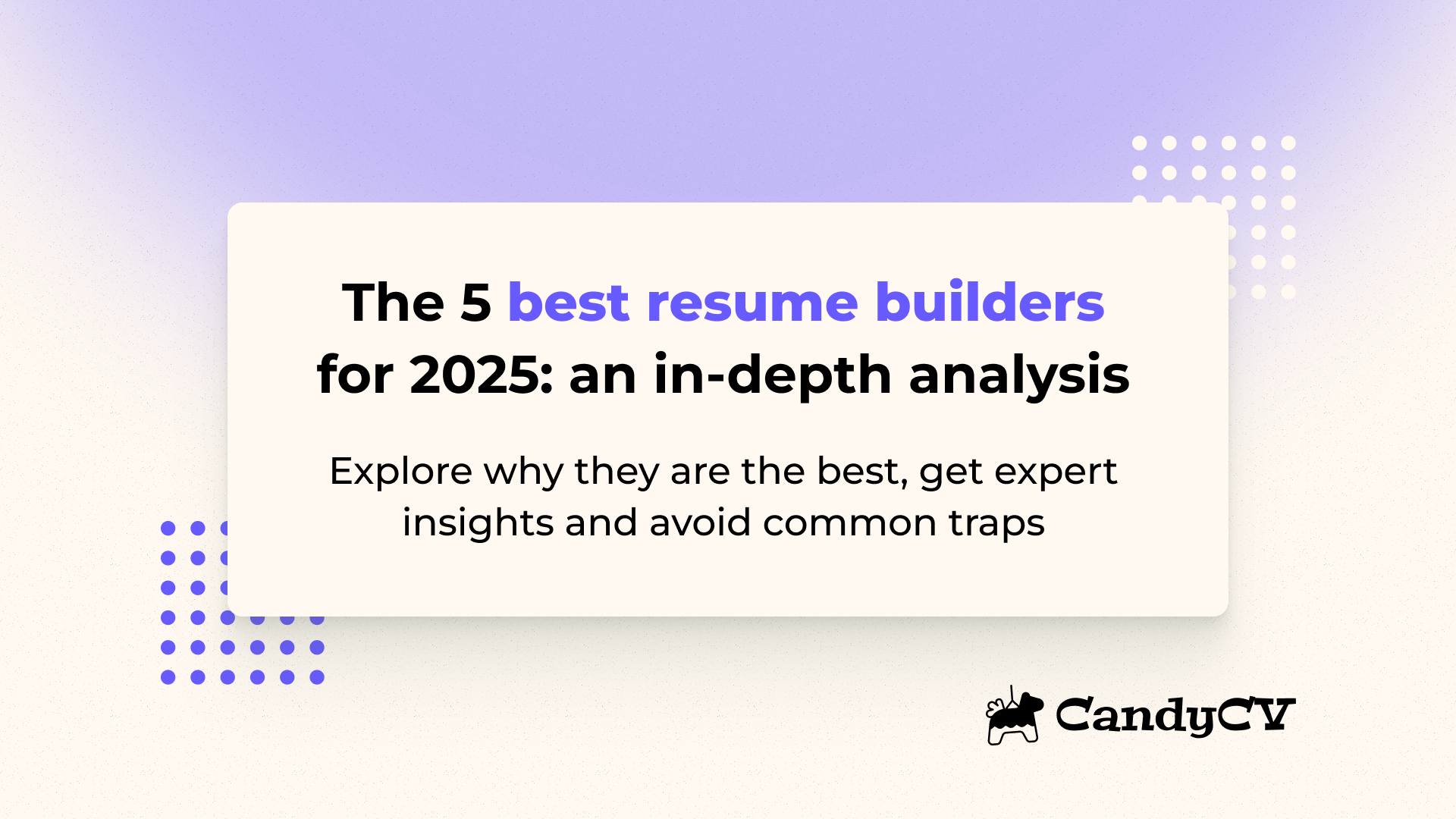
Top 5 resume builders: comparison and how to choose the best one
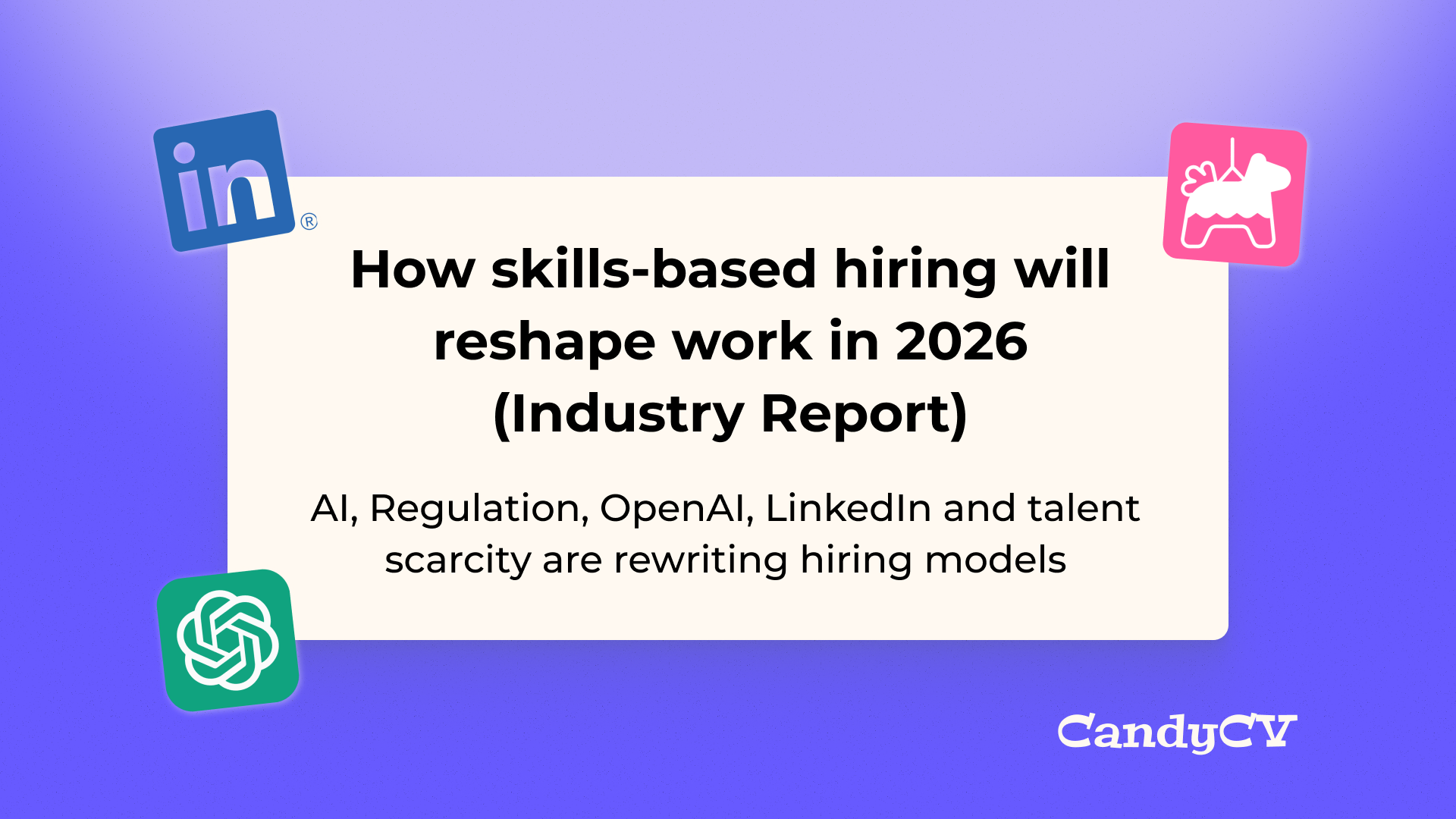
The skills-based hiring report: what it is and how it will reshape work in 2026
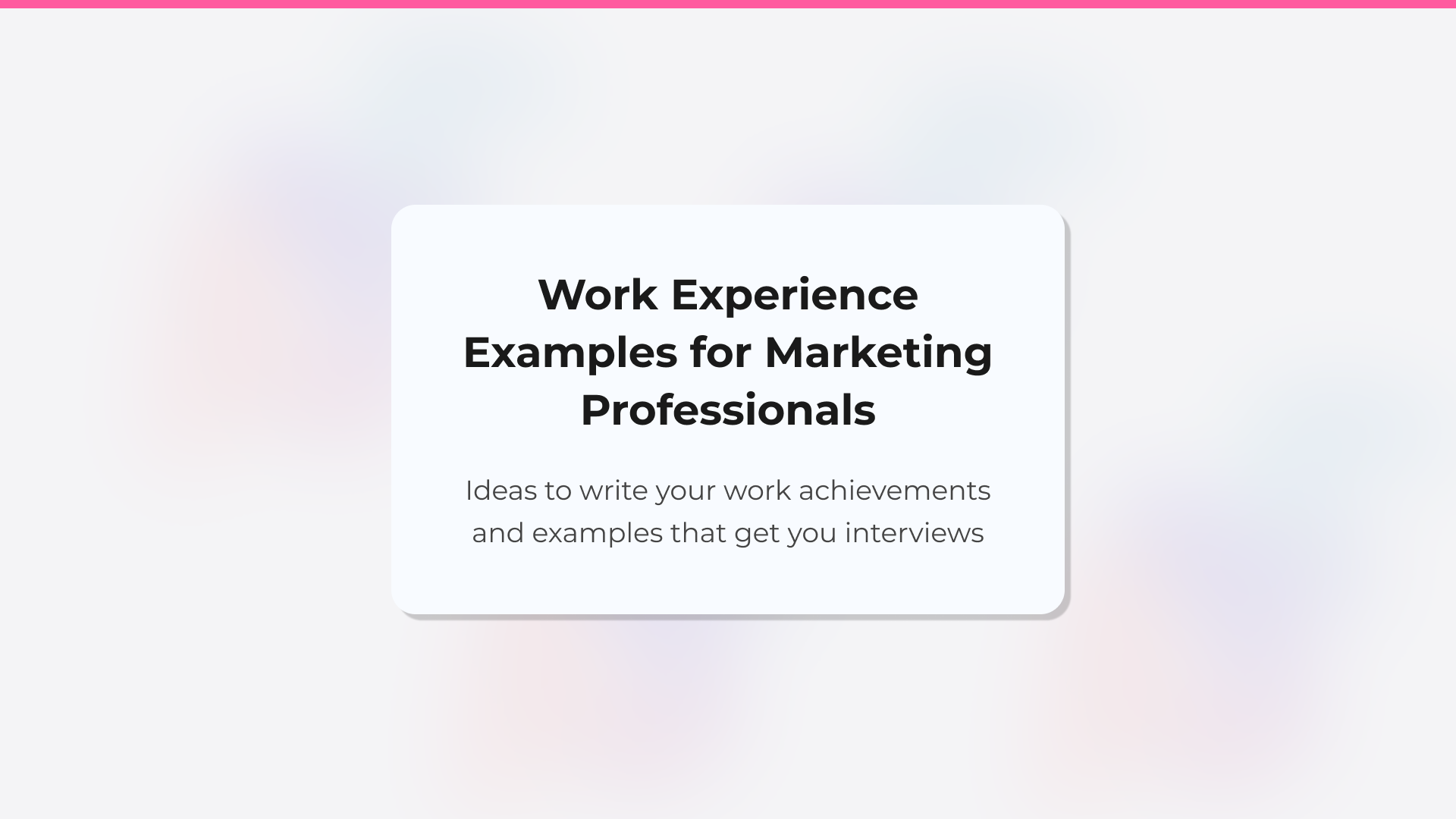
Examples of how to describe your work experience in a Digital Marketing resume
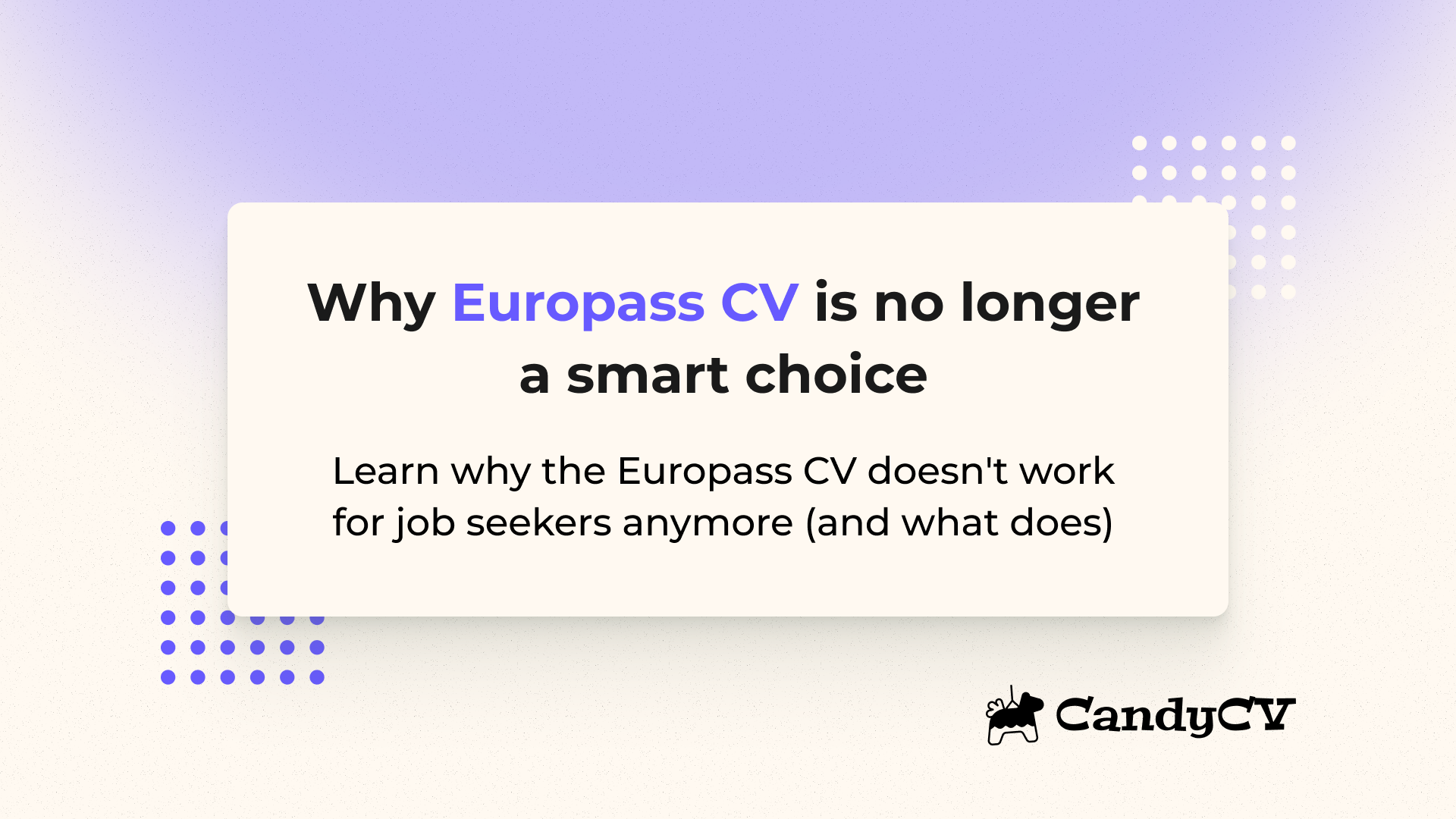
Europass CV: when it hurts your job search (and what to use instead)
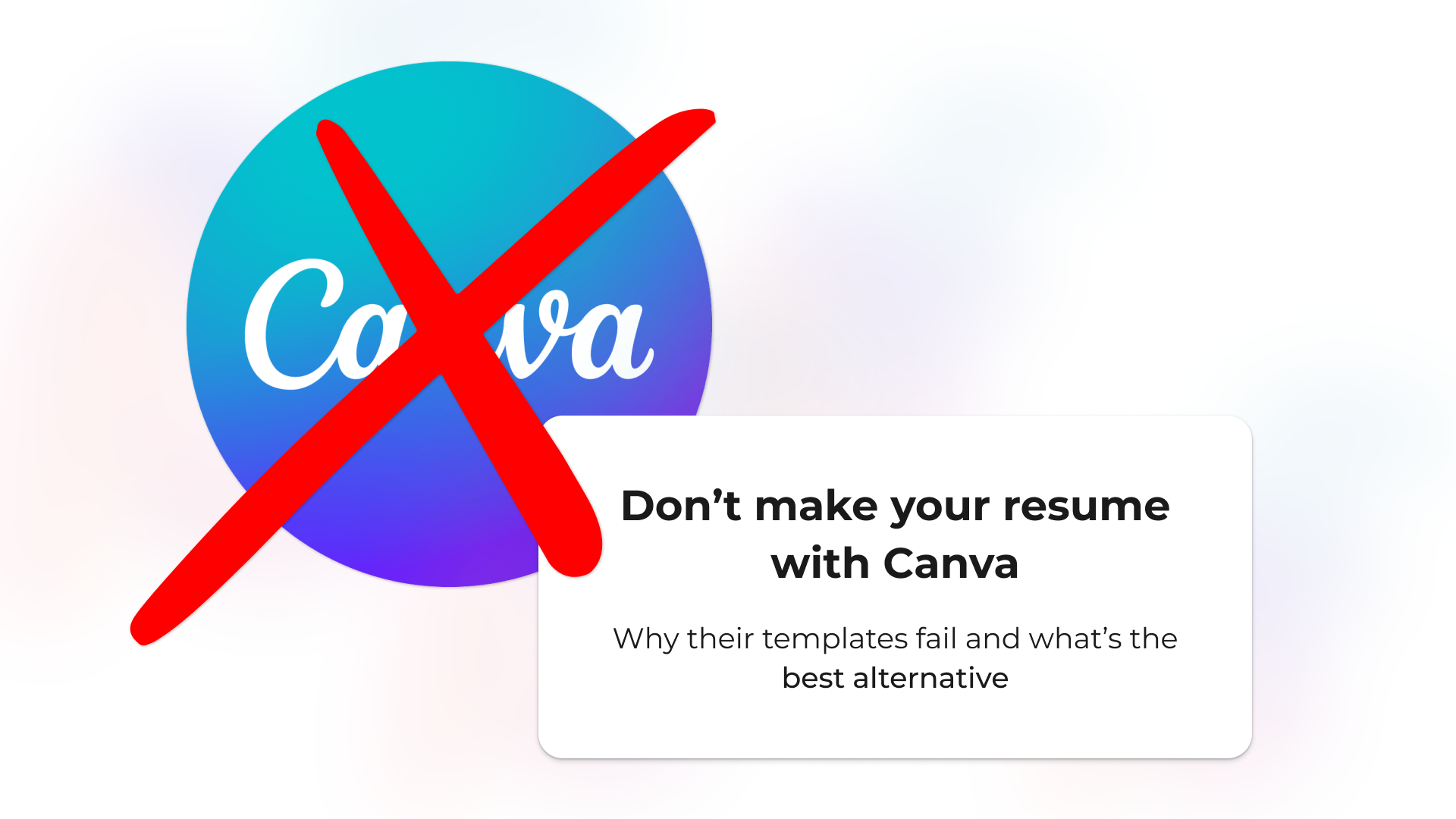
Don’t make your resume with Canva: why its templates fail and what to use instead
